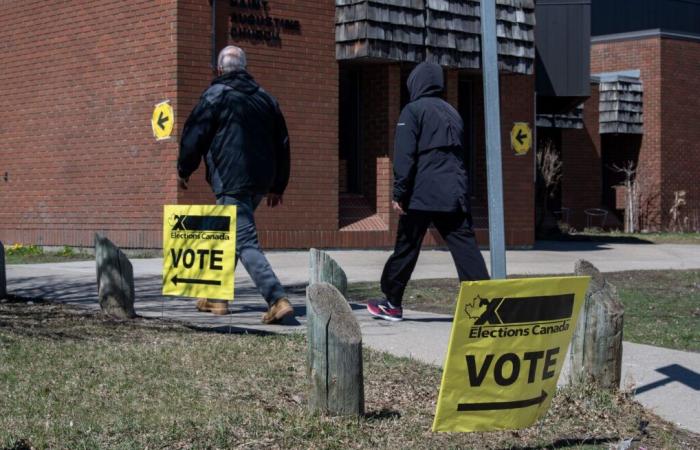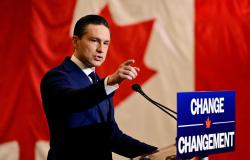
About three -quarters of Canadians believe that disinformation has affected the result of the federal election, but to various degrees.
The light survey, which was carried out with more than 1,500 Canadian adults between April 29 and May 1, suggests that 19 % of citizens think that false information or disinformation have had a major impact on the election.
Almost a third (32 %) said the impact was moderate, while 26 % of respondents believe that it had a minor impact on the result of the April 28 elections.
Only 9 % of Canadians said that disinformation had had no effect on the elections.
The survey was carried out online, so that it cannot be assigned a margin of error. He suggests that the Albertans were most likely to think that disinformation had affected the federal ballot, 86 %.
In the other provinces, 79 % of people in Quebec, 76 % of Ontarians and 73 % of the citizens of British Columbia said they believed that disinformation had had an impact.
Men are more inclined to think according to this survey, or 80 %, against 74 % of women who said they believed that disinformation had an impact on the final result of the April 28 elections.
Voters aged 18 to 34 were most likely to think that disinformation had an impact on the election, 81 % against 77 % for people aged 35 to 54 and 74 % for people aged 55 and over.
Liberal supporters were the least likely to believe that disinformation had played a role in the election, 74 %, compared to 83 % of conservative voters and 87 % of neo-democratic voters.
Andrew Enns, executive vice-president of Léger for Center de Canada, said that a long-speaking in recent years of foreign interference in Canadian politics and that the question could be in the minds of voters.
During the electoral campaign, Canadian security officials said they had spotted an online operation aimed at an federal conservative candidate for Chinese government policies. The working and information working group working on the elections also spotted an online information operation linked to the Chinese government which was aimed at Prime Minister Mark Carney.
Laurie-Anne Kempton, assistant secretary of the firm for communications, said at the end of April that Canadians could go to the polls with confidence.
However, federal officials had warned voters to be on the lookout for online disinformation linked to electoral debates.
Mr. Enns stressed that the word “disinformation” is a generic term and that respondents to the survey may have cited things like rumors and affirmations on the candidates when they filled the light survey.
“Canadians tend not to like negative campaigns and negative advertisements, for example, so I sometimes wonder […] If this is also perceived as a form of disinformation? “, Underlined Mr. Enns.
The survey indicates, however, that almost two thirds of Canadians (65 %) believe that the election results were correct.
Thirty-six percent said they were “confident” to the results, while 16 % said that they only trust the results and 13 % “only” trust it at all.
Quebecers were most likely to trust the results, 77 %, compared to 70 % of people in British Columbia, 62 % in Ontario and 53 % in Alberta.
A larger number of people aged 55 and over said they had confidence in the results, 72 %, compared to 61 % of 18-34 year olds and 59 % of 35-54 year olds.
Liberal voters were most likely to trust the results, 96 %, compared to 74 % of NPD voters and only 44 % of the preservatives.
The results indicate an unhappy, but “very real” deterioration of people’s confidence in institutions, according to Mr. Enns.
“There is a party break in confidence, while conservative supporters are less confident, unfortunately,” he said, adding that distrust could be due to people who hear about interference or who are exposed to conspiracy theories.
The Canada Elections website indicates that around half (52 %) of people who responded to a national study on voters estimated that the dissemination of false online information was a problem during the 2021 – 50 % election said the same thing about the 2019 election.
With Jim Bronskill







